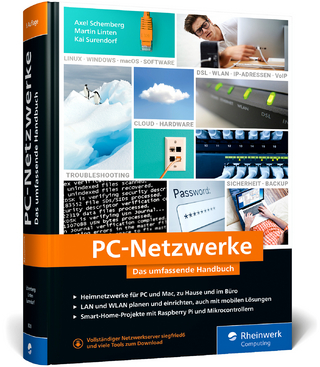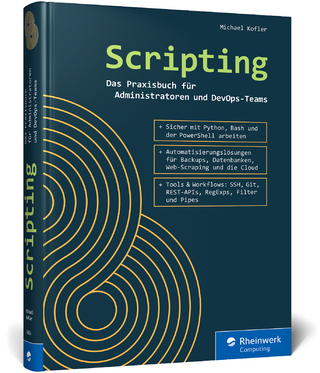
Associative Digital Network Theory
An Associative Algebra Approach to Logic, Arithmetic and State Machines
Seiten
2014
|
2009 ed.
Springer (Verlag)
978-94-007-9946-2 (ISBN)
Springer (Verlag)
978-94-007-9946-2 (ISBN)
- Titel wird leider nicht erscheinen
- Artikel merken
This book presents a unifying math/engineering approach to the main computer functions of combinatorial logic, arithmetic and state-machines. Essential concepts and their engineering interpretation are introduced in a practical fashion that includes examples.
Associative Digital Network Theory is intended for researchers at industrial laboratories, teachers and students at technical universities, in electrical engineering, computer science and applied mathematics departments, interested in new developments of modeling and designing digital networks (DN: state machines, sequential and combinational logic) in general, as a combined math/engineering discipline. As background an undergraduate level of modern applied algebra (Birkhoff-Bartee: Modern Applied Algebra - 1970, and Hartmanis-Stearns: Algebraic Structure of Sequential Machines - 1970) will suffice. Essential concepts and their engineering interpretation are introduced in a practical fashion with examples. The motivation in essence is: the importance of the unifying associative algebra of function composition (viz. semigoup theory) for the practical characterisation of the three main functions in computers, namely sequential logic (state-machines), arithmetic and combinational (Boolean) logic.
Associative Digital Network Theory is intended for researchers at industrial laboratories, teachers and students at technical universities, in electrical engineering, computer science and applied mathematics departments, interested in new developments of modeling and designing digital networks (DN: state machines, sequential and combinational logic) in general, as a combined math/engineering discipline. As background an undergraduate level of modern applied algebra (Birkhoff-Bartee: Modern Applied Algebra - 1970, and Hartmanis-Stearns: Algebraic Structure of Sequential Machines - 1970) will suffice. Essential concepts and their engineering interpretation are introduced in a practical fashion with examples. The motivation in essence is: the importance of the unifying associative algebra of function composition (viz. semigoup theory) for the practical characterisation of the three main functions in computers, namely sequential logic (state-machines), arithmetic and combinational (Boolean) logic.
Dr. Nico Benschop worked at Philips research (NatLab) for 32 years, working in the VLSI Digital Design Department. He received his MSc. at the Technical University of Delft, Netherlands and his PhD at Waterloo University in Ontario, Canada.
| Zusatzinfo | Bibliography |
|---|---|
| Verlagsort | Dordrecht |
| Sprache | englisch |
| Themenwelt | Mathematik / Informatik ► Informatik ► Netzwerke |
| Mathematik / Informatik ► Informatik ► Theorie / Studium | |
| Mathematik / Informatik ► Mathematik ► Algebra | |
| Mathematik / Informatik ► Mathematik ► Logik / Mengenlehre | |
| Technik ► Nachrichtentechnik | |
| ISBN-10 | 94-007-9946-2 / 9400799462 |
| ISBN-13 | 978-94-007-9946-2 / 9789400799462 |
| Zustand | Neuware |
| Haben Sie eine Frage zum Produkt? |
Mehr entdecken
aus dem Bereich
aus dem Bereich
das umfassende Handbuch für den Einstieg in die Netzwerktechnik
Buch | Hardcover (2023)
Rheinwerk (Verlag)
29,90 €
das Praxisbuch für Admins und DevOps-Teams
Buch | Hardcover (2023)
Rheinwerk (Verlag)
39,90 €


